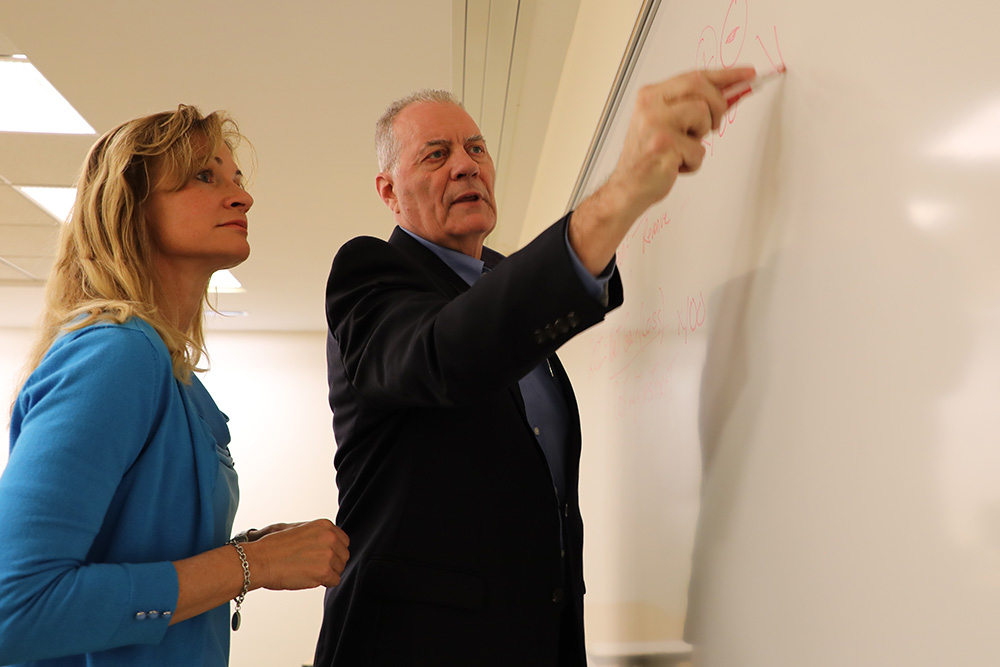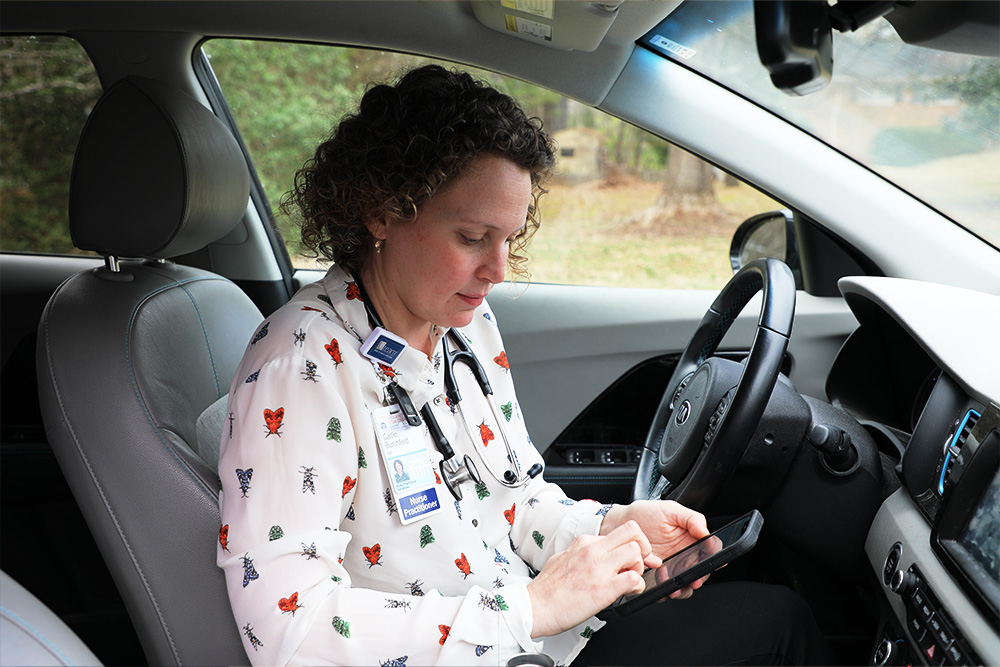
Money Matters
It was 1995, and nurse Richard Ridge (PhD ’01)—years before he became a senior administrator himself—walked into the hospital men’s room
“We don’t want nurses to be passive recipients of a budget the way they were 40 years ago . . . Whether they’re in a decision-making role or not, nurses at all levels need this financial literacy and [need to] understand how to speak the language that senior administrators use.”
Richard Ridge, assistant professor and the Virginia Nurses Association's commissioner on workforce issues
and spotted the CEO, to whom he’d been hoping to propose a unit change. Leaving the restroom in unison, Ridge seized the moment, fell into step beside him, took a deep breath, and made his pitch.
The story, which the now assistant professor (and VNA commissioner on workforce issues) often shares with his graduate students, hints at Ridge’s determination to build nurses’ business confidence and is part of what’s driving several recent curricular enhancements to help them navigate the chasm between clinical care and the C-suite.
The roots of the lessons are practical, Ridge said. “I’ve seen so many great clinical ideas die on the vine because financial decision-makers did not fully understand the value of something,” he explained. “So, I tell my students, ‘You have to speak the language.’”
After all, Ridge added, “Money is big. Healthcare is a business. We live in America.”

The graduate nursing Essentials, which outline the Board of Nursing’s curricular requirements, include broad expectations that nursing students build financial skills. In Ridge’s Resource Management and Resilient Leadership in Complex Health Systems class, DNP students dive headlong into budgetary case studies, develop two-minute executive pitches, discuss stakeholder engagement, and bandy about terms like margins, value-based purchasing, bundling, cost savings versus cost reductions, and government reimbursements. As a result, assistant professor and DNP program director Beth Quatrara (MSN ’97, DNP ’10) expects most students’ final capstone presentations will demonstrate in some way their growing financial facility—a shift from even just a year or two back.
Fiscality “hasn’t always been a natural part of graduate nursing education,” Quatrara said. “But if you want to be at the table and participate in a conversation about anything—a new procedure, piece of equipment, hiring a new staff member, developing a new type of clinic—you have to be nimble in the use of business language.”
For Claire Lewis (DNP ’24), a gynecological oncology nurse practitioner at INOVA, the learning’s been transformational.
“I’ve learned how to initiate research. To understand leadership and financial models. To speak and be heard by people in the C-suite,” said Lewis, whose scholarly project focused on earlier introduction of outpatient palliative care for patients with gynecological cancers, which she projected would save nearly $500,00 in the first three years, an 86 percent return on investment. “Before, it was ‘fly by the seat of my pants’ and use my personality to hold court, but what I’ve learned has set a leadership foundation.”
Financial skills have also helped Caitlin Burchfield (DNP ’23) make a business case for the model of work she does at Virginia at Home, a home-based primary care pilot developed for high-risk older adults launched in 2020. Burchfield, who’d chafed working in fee-for-service health systems that incentivized high utilization and patient quotas, said she’s learned to make cogent financial arguments for Virginia at Home’s brand of value-based care, which is far more in tune with her nursing ethos. According to Burchfield’s projections, Virginia at Home—which costs about $1 million each year to operate and reduces hospital readmissions by 80 percent and emergency department visits by about 50 percent—is projected to save the state nearly $18 million by year three, an 886 percent return on investment, not to mention the immeasurable positive impact on these patients’ and their families’ lives.
“It’s one thing to intuitively say, ‘This should save us money,’” Burchfield said. “But we’re learning to say it compellingly so other leaders can hear us and take us seriously.”
“We live in a world of shrinking resources and more competition for them. So how do we nurses help decision makers to maximize the clinical, patient, and nursing outcomes? We talk money.”
Richard Ridge, assistant professor
Money skills aren’t just fodder for chatting up CEOs, Ridge said; they’re also personally beneficial too. Understanding a prospective employer’s fiscal health can inform a job change. Knowing financial lingo helps nurses engage as board members. And being able to negotiate salary and benefits gives nurses the confidence to claim what they’re worth.
“We don’t want nurses to be passive recipients of a budget the way they were 40 years ago,” Ridge said, “and to have people say, ‘Oh, you don’t need to bother with the budget because it comes out of the finance office.’ Whether in a decision-making role or not, nurses at all levels need this financial literacy and [need to] understand how to speak the language that senior administrators use.”
“We live in a world of shrinking resources and more competition for them,” he added, “so how do we nurses help decision makers to maximize the clinical, patient, and nursing outcomes? We talk money.”

